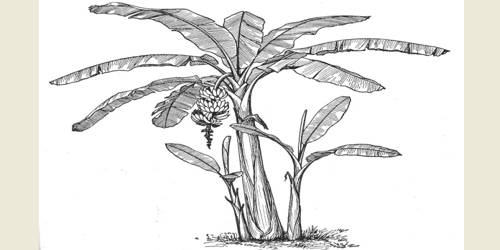Well and Woe of Rainy Season
Introduction: A rainy season is the time of year where the majority of a country’s or region’s annual precipitation occurs. There are six seasons in Bangladesh. The rainy season is the second of them. It comes just after the scorching heat of summer. The month of Ashar and Shraban is the rainy season.
When and how it occurs/How it causes: The extreme heat of the summer turns seawater in the vapor. The wind which blows over our country in this season carries the vapor. This vapor comes in contact with the cool air or at the top of the mountain, it freezes into the cloud and causes rainfall. The term ‘rainy season’ can mean different things depending on what part of the world you’re in. For example, the rainy season in India is controlled by the monsoon, making for persistent heavy rains. Whereas the rainy season in Cuba is related to the occurrence of heavy evening thunderstorms and infrequent but intense tropical cyclones (hurricanes).
Short description/Demerits: A monsoon is a reversal of the mean wind direction and with it come changes to the climate of a region. In the rainy season, the sky is overcast with black clouds. Sometimes, the sun can never be seen for days together. There is heavy rainfall with flashes of lightning and roars of thunder. Sometimes, it rains continuously for days and nights. Rivers of our country grow violet, overflow their banks, and causes a flood. Fields, meadows, and low roads of Bangladesh go underwater and people cannot go out to do their out-door works.
Advantages and disadvantages: The rainy season is the giver of life and nature. During the hot days of the summer, all nature seems dead. Animals grow sick of the terrible heat. Men feel tired. When the rain set in, the whole face of nature becomes to change. The dried-up land gets a new life. All the trees, plants and crops grow up with the advent of the rainy season. Nature becomes green and fresh. The peasants of our country become happy as they can till their lands and grow crops. The rainy season has its disadvantages also. As it rains all day long, it is impossible to go outside. The poor villagers who live in huts suffer much. They cannot go to work. They have to go without food with all the members of the family. Excessive rainfall causes floods and damages the crops. Sometimes it sweeps away cattle and other things of the villagers. As a result, famine breaks out sometimes.
Usefulness/Blessing of the season: The rainy season is also useful to us. It purifies the air and washes away filths. It lessens the summer heat. Green leaves grow in trees. The cultivators of our country can make the paddy fields ready. The continuous rain during monsoon provides us the chance to collect this runoff water by different methods of rainwater harvesting. Our crops, trees, and plants grow rapidly. Various juicy fruits such as jack-fruits, mangoes, bananas, pineapples, etc. ripen at this time. Also, either we can use this saved water for different purposes or for recharging groundwater.
Conclusion: The rainy season has both advantages and disadvantages. Also, it is important for all life forms on earth whether big or small. For this reason, rain supply a large amount of fresh water. But it is the most important and useful season in our country. As it is responsive it does well to us in many ways. Above all, if there will be no rain then many green areas of different demography will turn into dry and barren land.
















